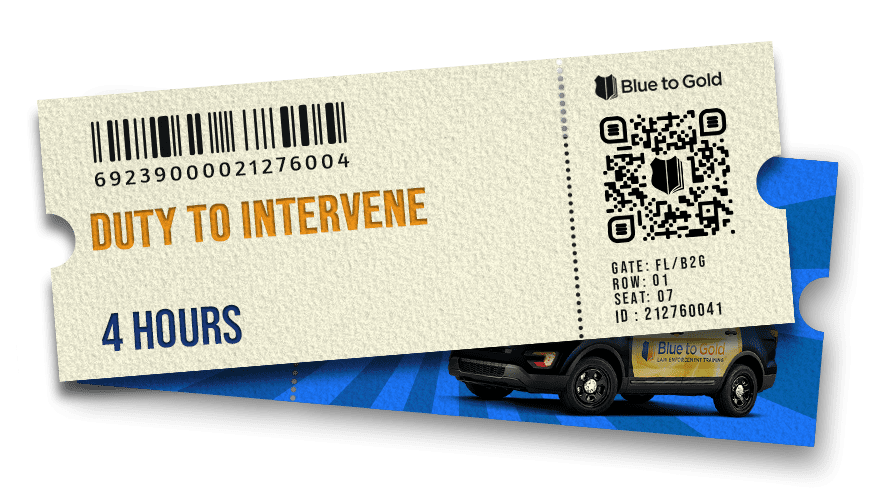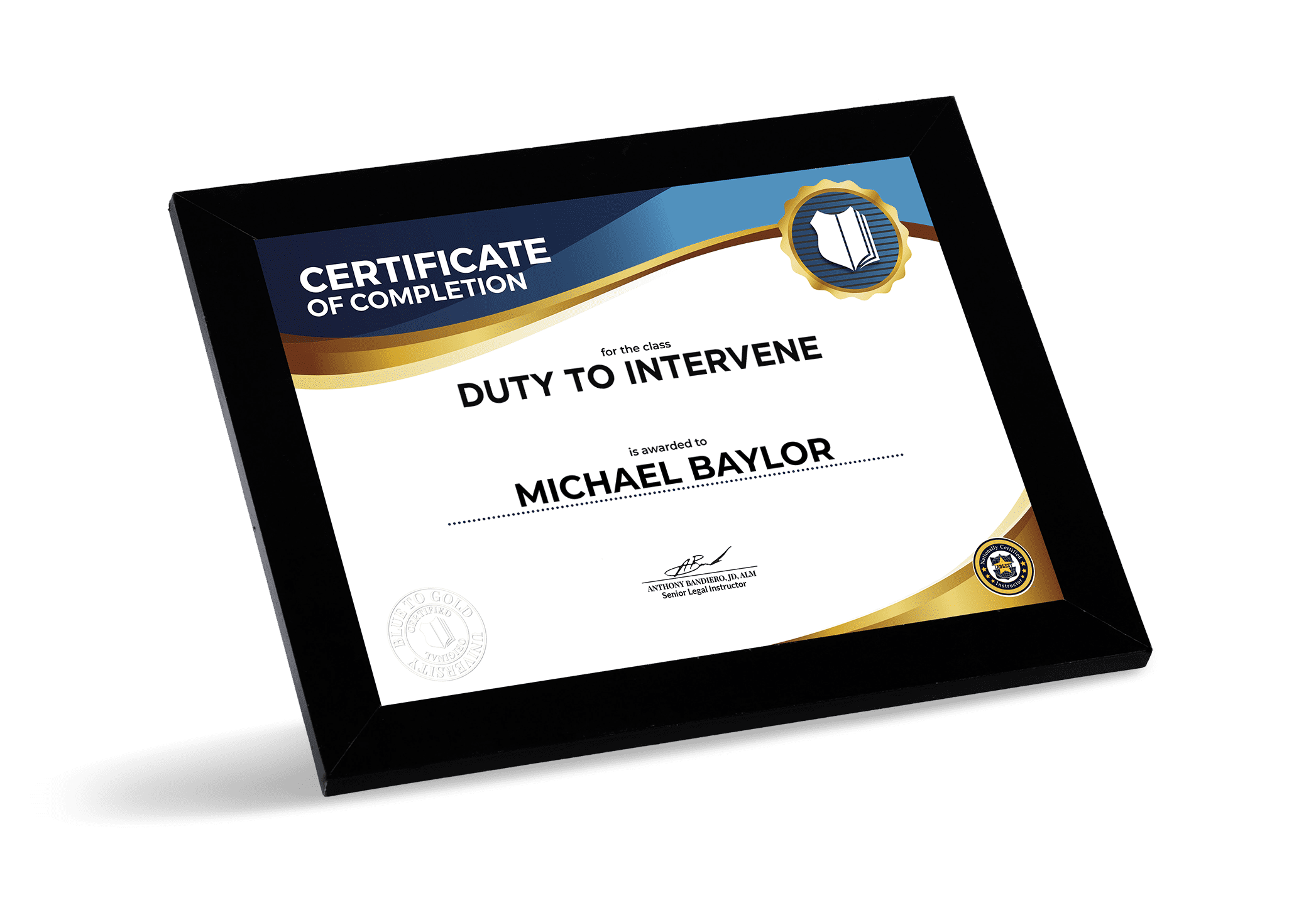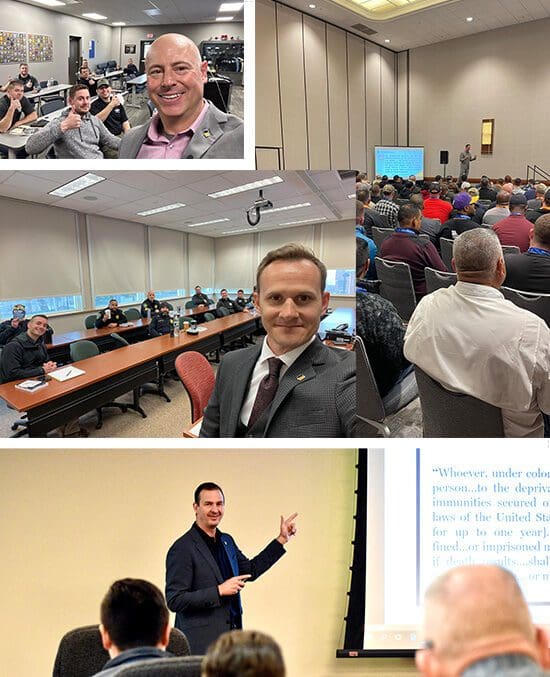As law enforcement professionals, the responsibility to safeguard justice extends not only to our interactions with the public but also within our own ranks. Failing to intervene can have dire consequences, from termination to criminal charges and civil rights lawsuits. Our groundbreaking Duty to Intervene course is a comprehensive solution, arming officers with essential skills to prevent unnecessary use of force, enhance community trust, and intervene safely and effectively.
Why Choose Our Duty to Intervene Course?
Prevent Unnecessary Use of Force: Acquire tools and techniques to minimize force, ensuring encounters are handled with professionalism and restraint.
Increase Community Trust: Demonstrate accountability and intervention to strengthen the bond between law enforcement and the communities we serve.
Reduce Disciplinary Issues: Gain a deep understanding of the law to minimize the risk of disciplinary issues arising from negligence or failure to intervene.
Empower Effective Intervention: Develop the confidence and skills to intervene, upholding the law and ensuring accountability.
Our dynamic training goes beyond tradition, offering a high-energy, interactive program with engaging videos to reinforce key points. Don’t wait—enroll in our Duty to Intervene course today and embrace accountability, safety, and professional excellence.













